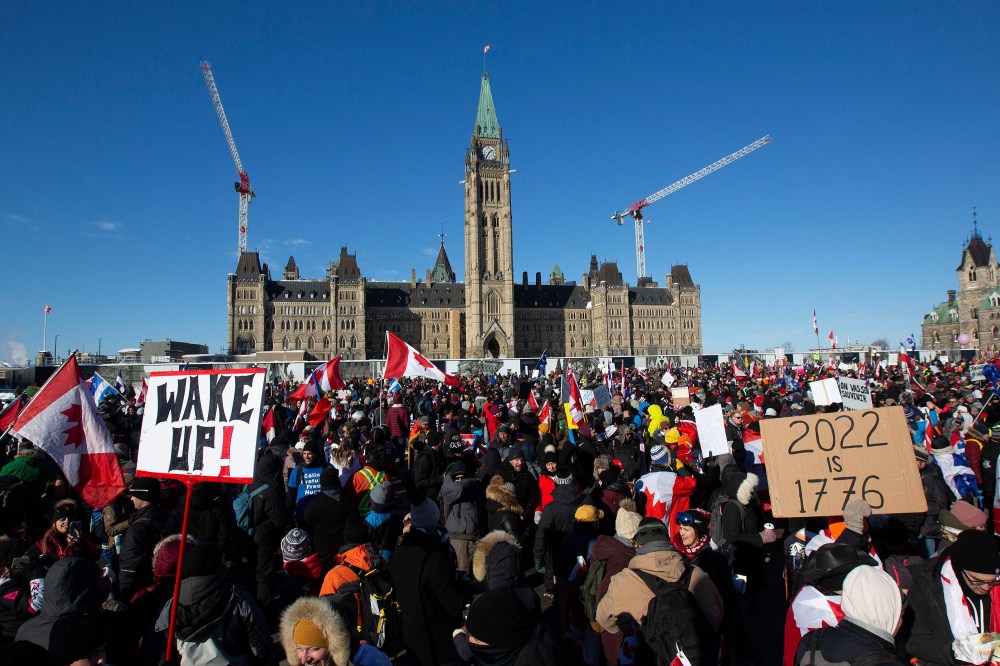Inquiry a small victory for public accountability
Advertisement
Read this article for free:
or
Already have an account? Log in here »
We need your support!
Local journalism needs your support!
As we navigate through unprecedented times, our journalists are working harder than ever to bring you the latest local updates to keep you safe and informed.
Now, more than ever, we need your support.
Starting at $15.99 plus taxes every four weeks you can access your Brandon Sun online and full access to all content as it appears on our website.
Subscribe Nowor call circulation directly at (204) 727-0527.
Your pledge helps to ensure we provide the news that matters most to your community!
To continue reading, please subscribe:
Add Brandon Sun access to your Free Press subscription for only an additional
$1 for the first 4 weeks*
*Your next subscription payment will increase by $1.00 and you will be charged $20.00 plus GST for four weeks. After four weeks, your payment will increase to $24.00 plus GST every four weeks.
Read unlimited articles for free today:
or
Already have an account? Log in here »
Hey there, time traveller!
This article was published 08/12/2022 (1139 days ago), so information in it may no longer be current.
There was one clear winner in the Emergencies Act public inquiry, and it was neither the horn-honking convoy of protesters that descended upon Ottawa and border communities last February, nor Prime Minister Justin Trudeau and his government, which invoked the act in response.
Instead, it was Canadians who benefited. Canada’s democratic process and, more specifically, the Emergencies Act itself offered some insights regarding the federal government’s often-murky decision-making, as well as how the protest began and flourished during the 18-day siege of semi-trailer trucks in Ottawa.
It was the first time the Emergencies Act has been used since it became law in 1988, and it proved to be a vast improvement over the legislation it replaced, the War Measures Act.

That earlier piece of legislation allowed federal governments to bypass the House of Commons and the Senate during two world wars, leading to the internment of thousands of “enemy aliens,” most notably Japanese Canadians during the Second World War and Ukrainian Canadians and immigrants in the First World War.
Mr. Trudeau’s father, former prime minister Pierre Trudeau, also used the War Measures Act to quell the FLQ crisis in 1970, dispatching soldiers to patrol the streets of Montreal, Quebec City and Ottawa. Civil liberties were suspended and hundreds of people, many of whom had no association with the separatist terror cell, were detained.
It remains a hotly debated moment in Canadian history, as has been the use of the Emergencies Act more than half a century later.
The difference, however, is that Canadians have a much clearer picture of the reasons behind Justin Trudeau’s decision to invoke the act than was the case in October 1970.
When he invoked the Emergencies Act on Feb. 14 to end the blockades, Mr. Trudeau also triggered a clause in the legislation that requires a public inquiry to determine whether the government was justified in employing the act.
Without the inquiry, it’s unlikely Canadians would have learned about the many text messages, emails and details from meetings between ministers and officials regarding whether the convoy was indeed a security threat and whether the Emergencies Act was an appropriate response.
Without the act’s provisions, we certainly wouldn’t have seen Mr. Trudeau and members of his cabinet take the stand at a public inquiry to defend their decision.
While Mr. Trudeau’s choice of words during his testimony — “I am absolutely, absolutely serene, confident that I made the right choice” — isn’t as pithy as his father’s famous “Just watch me” response to reporters’ questions in 1970, it provided a moment of public accountability that is rarely required from our nation’s leaders.
The inquiry also delivered revealing moments from several of the demonstration’s organizers, including Tamara Lich and Pat King, both of whom were arrested and charged after the Emergencies Act was invoked.
Ms. Lich described many power struggles among convoy organizers, and said the more than $24 million they raised became a bone of contention.
Inquiry testimony also revealed police sources in Ottawa were feeding intelligence to convoy participants, particularly regarding when the Emergencies Act would be invoked and the trucks would be cleared.
The inquiry also received more than 9,500 written submissions, and Ontario Superior Court Justice Paul Rouleau, who presided over the six weeks of public testimony, has until early February to deliver his report.
Whether or not he decides Mr. Trudeau and the federal government were correct in their use of the Emergencies Act, his findings will bring a very public closure to a process whose transparency is of a sort Canadians deserve far more often from those who are elected to serve them.
» Winnipeg Free Press
